How to Help Your Struggling Learner
When I was in 5th grade, I got a “D” in handwriting. I had straight A’s that semester in every other subject. When I got my report card, my face burned with shame. I remember feeling sick to my ten-year-old stomach all the way home on the bus.
I didn’t care about the history exam I had aced or the spelling test I had studied so hard to pass.
Nope. That “D” loomed large on the page, overshadowing every other accomplishment, by far.
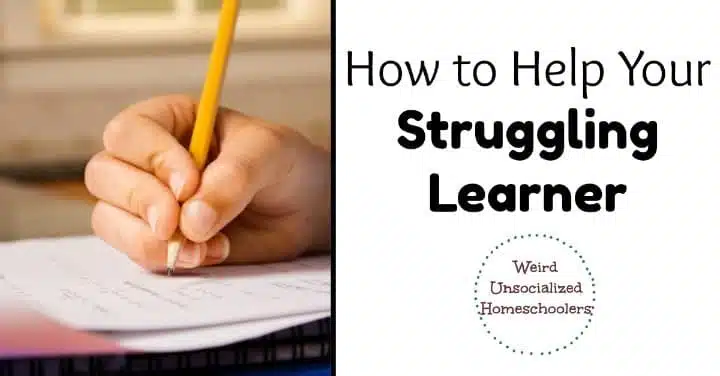
It wasn’t that my handwriting wasn’t legible. It was. In fact, it looked a lot like my mom’s handwriting, swirly and, I thought, pretty. But, as my teacher frequently reminded me, my letters didn’t slant to the right. My clear, easy-to-read letters were straight up and down. Thus, the “D.”
When I got home, my mom took a look at the report card. She turned to me, smiled, and said, “You can always work on your penmanship. I am not worried about it. I don’t want you to have a ‘D’ but I can read what you write, and that’s what matters most.”
My thoughts go back to that “D” a lot these days.
Homeschooling my boys reminds me so much what it felt like to learn, discover, struggle, and even fail in my education.
Moreover, both of my sons have learning differences that create gaps in their education far beyond their handwriting not slanting to the right. My youngest struggles with reading, even at twelve years old. Both would prefer to lug massive rocks than hold a pencil, and my oldest uses a calculator for even the most basic multiplication and division.
The truth is, our kids will always have subjects that do not come as naturally and are more of struggle. The longer I homeschool, the more I realize that how I react to their difficulties matters far more than the curriculum we are using or the co-op we belong to.
Here are my best tips and tricks for helping our children in areas that don’t come easily.
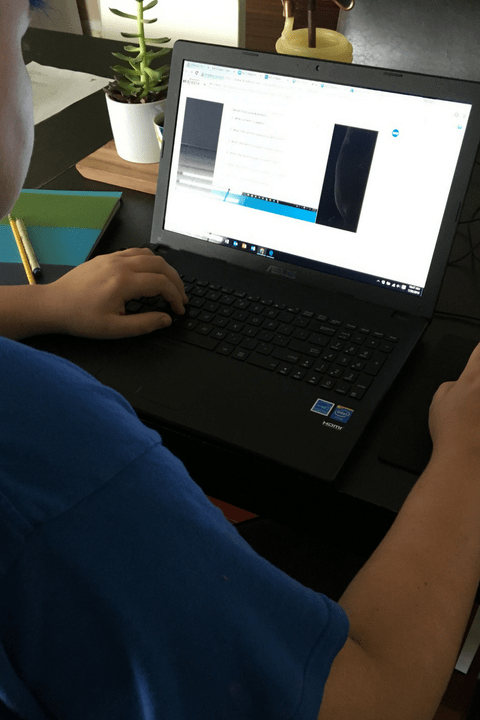
How to Help Your Struggling Learner
Focus On Strengths
It may seem counter-intuitive, but choosing to spend time in an area that is a natural strength for my child helps him succeed in every subject. Focusing on his strengths makes him more confident in his abilities. That confidence means he’s more likely to try in the areas that are tough because he feels a certain global measure of success.
Keep It Short And Sweet
I have also found it helpful to keep difficult lessons short but consistent. For example, with my dyslexic son, we practice reading every day, twice a day, but only for 10-15 minutes at a time. Then, we move on to other subjects that he finds more interesting, and that come more naturally to him.
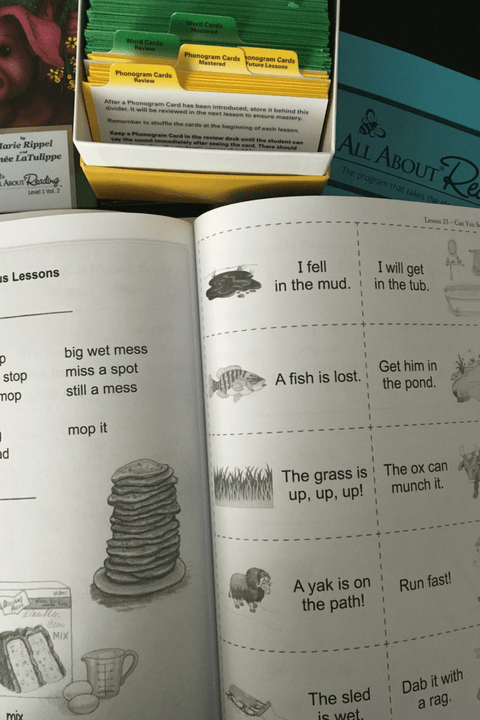
Consider Outside Help
Sometimes, it is appropriate to consider a tutor or another teacher for subjects that are just not working. For us, a different perspective, another authority figure, and someone with more experience has proven helpful over the years. Even better, seeking outside help protected my relationship with my boys. I was less frustrated, and they were more engaged in the subjects we still learned at home.
The longer I homeschool, the more I realize that how I react to my kids' difficulties matters far more than the curriculum we are using or the co-op we belong to.Think Big Picture
One of the most impactful ways we can help our struggling learners thinking long-term. It can seem so pressing and urgent when your 8-year-old struggles with basic math facts. But, the longer I do this the more I realize, homeschooling is a marathon, not a sprint. There’s plenty of time to work on the areas that need attention. Slow, steady, relationship-focused learning pays off over time. Even in the subjects you worry your child will never master.
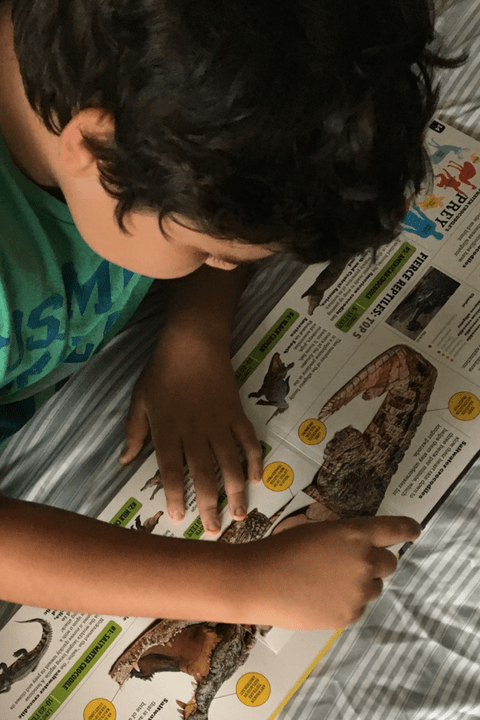
My mom’s reaction to that poor grade thirty-four years ago made an impact. I was encouraged to try, without fearing continued failure. I completed extra worksheets to practice my capital Q’s and lowercase r’s and managed to eek out a “B” by the end of the year.
My handwriting still doesn’t slant to the right, and it still looks just like my mom’s. It’s clear to me now, the lesson I learned that year had nothing to do with penmanship at all.
What are some of the ways you’ve helped your child in his or her area of struggle?
You Might Also Like
Shawna Wingert is a special education teacher turned writer, speaker and consultant. She is also a homeschooling mom of two brilliant boys with differences and special needs. Shawna has written four books for parents of special needs – Everyday Autism, Special Education at Home, Parenting Chaos and her latest, Homeschooling Your Child With Special Needs. She has also been featured in special needs discussions on Today.com, The Mighty, The Huffington Post and Autism Speaks. You can find her online at DifferentByDesignLearning.com. You can follow Shawna and Different By Design Learning on Pinterest, Facebook and Instagram.



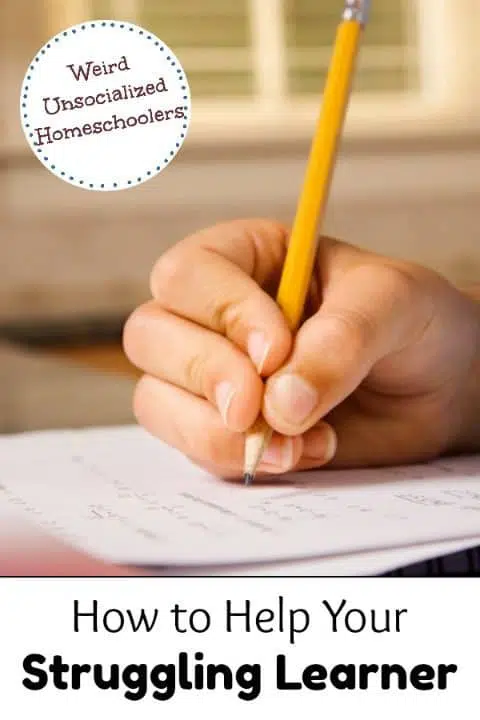


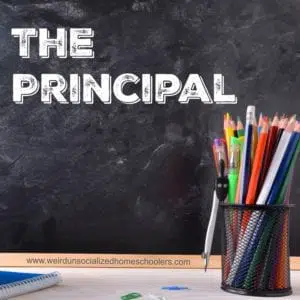

Hello!
I’m a fellow homeschooling and mama, and I love your blog! I’m also working with a small non profit magazine that goes out to home schooling parents mostly in Alberta, Canada.
I came across your article here: https://www.weirdunsocializedhomeschoolers.com/how-to-help-your-struggling-learner/
…and I would love to have your permission to reprint it in The WISDOM Family Magazine.
We of course will give you full author credit with directions to your blog in a bio. I’d love to send you a copy of the magazine, too!
Please let me know when you have a moment.
Thanks so much,
Hi, Terry. Thank you for your request. I have spoken to Shawna, the contributing writer, and she has given permission to republish the article. You can use her bio and link to her site and include something such as “Originally published on Weird, Unsocialized Homeschoolers.” Please let me know if you have any questions. The best way to reach me is through email which you can find at the contact link in the blog header. Thanks!